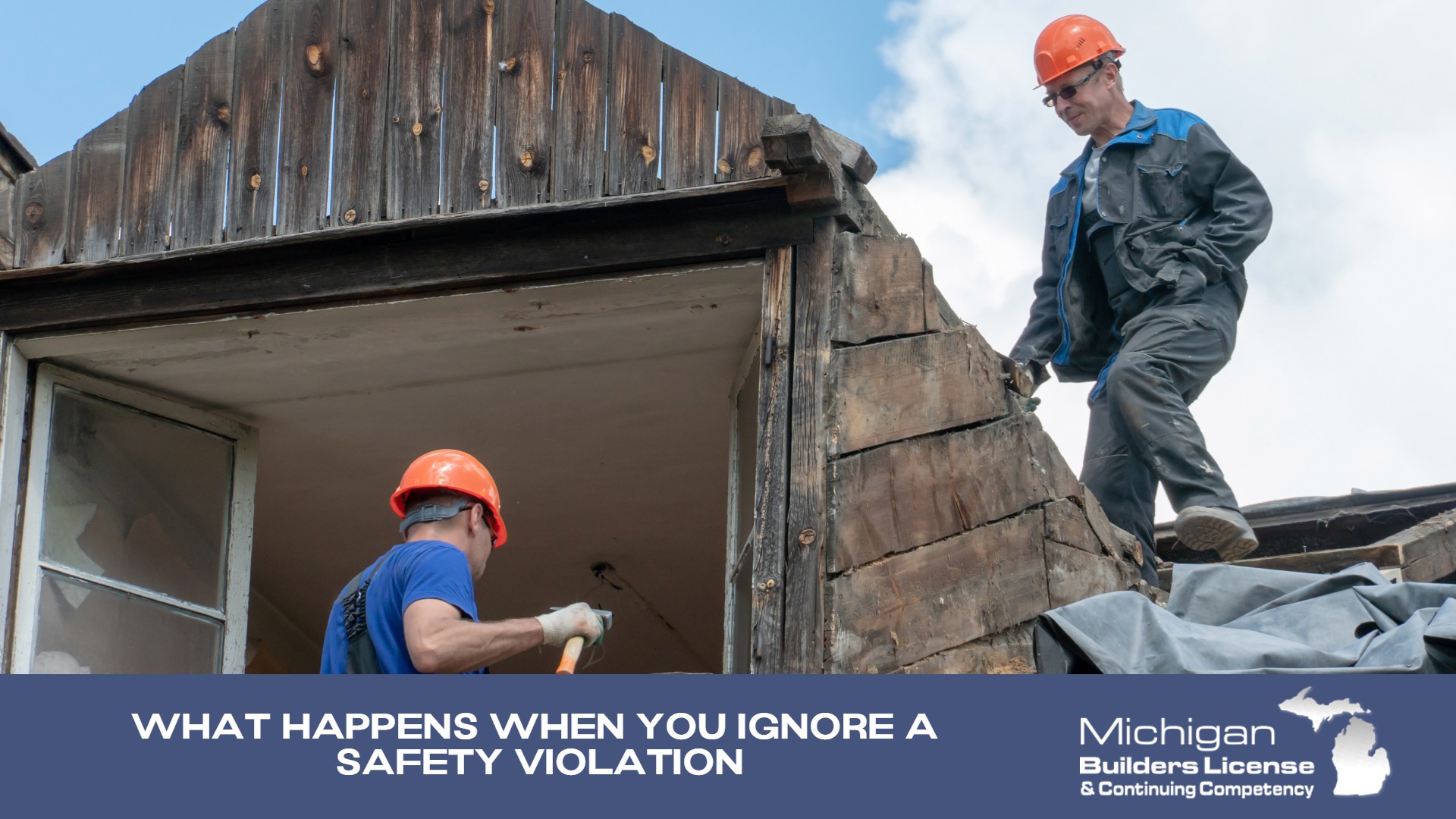Safety is non-negotiable on Michigan construction sites, but when safety violations go uncorrected, the consequences can be severe. One of the most significant enforcement tools used by the Michigan Occupational Safety and Health Administration (MIOSHA) is the Cease Operation Order. This measure is put in place when employers fail to address cited safety violations within the required timeframe, and it can completely shut down a job site until compliance is achieved.
What Is a Cease Operation Order?
A Cease Operation Order is issued when an employer fails to correct cited safety violations within the required timeframe. Instead of merely issuing a notice of failure to abate, MIOSHA takes decisive action by ordering a complete halt to operations on the affected jobsite.
Under Section 45 of the Michigan Occupational Safety and Health Act (MCL 408.1001 et seq.), MIOSHA has the authority to direct employers to cease operating or render certain operations inoperable until the hazard is addressed. If an employer does not comply with the order, MIOSHA refers the matter to the Attorney General’s Office, which may initiate legal proceedings in the local circuit court.
What Happens When a Cease Operation Order Is Issued?
When a Cease Operation Order is issued, MIOSHA representatives tag various areas of the jobsite, including buildings, equipment, and staging areas where the employer is performing work. The order mandates an immediate halt to all activities, even those unrelated to the violation.
The employer must sign the order, acknowledging both receipt and the required corrective actions. After issuance, MIOSHA inspectors monitor the jobsite daily to ensure compliance. If the employer continues to operate despite the order, MIOSHA escalates the matter to the Attorney General’s Office, leading to potential legal action to enforce the order.
Why Ignoring Safety Violations Isn’t Worth the Risk
Ignoring safety violations is not only dangerous but also costly. A Cease Operation Order can bring an entire project to a standstill, causing significant delays and financial losses. More importantly, it highlights a failure to prioritize worker safety—something that can damage a company’s reputation and lead to legal consequences.
To avoid facing a Cease Operation Order, it is essential to take proactive measures to address safety issues as soon as they arise. Staying compliant with MIOSHA regulations will help protect your workers and your business from shutdowns and legal troubles.
For more information on safety compliance and avoiding Cease Operation Orders, visit the Michigan Occupational Safety and Health Administration website.
References:
Paul, B. (2025). Cease Operation Orders: A Critical Tool When Employers Fail to Fix Citations. MIOSHA Construction Safety Supervisor.
Michigan Occupational Safety and Health Act (MCL 408.1001 et seq.).





